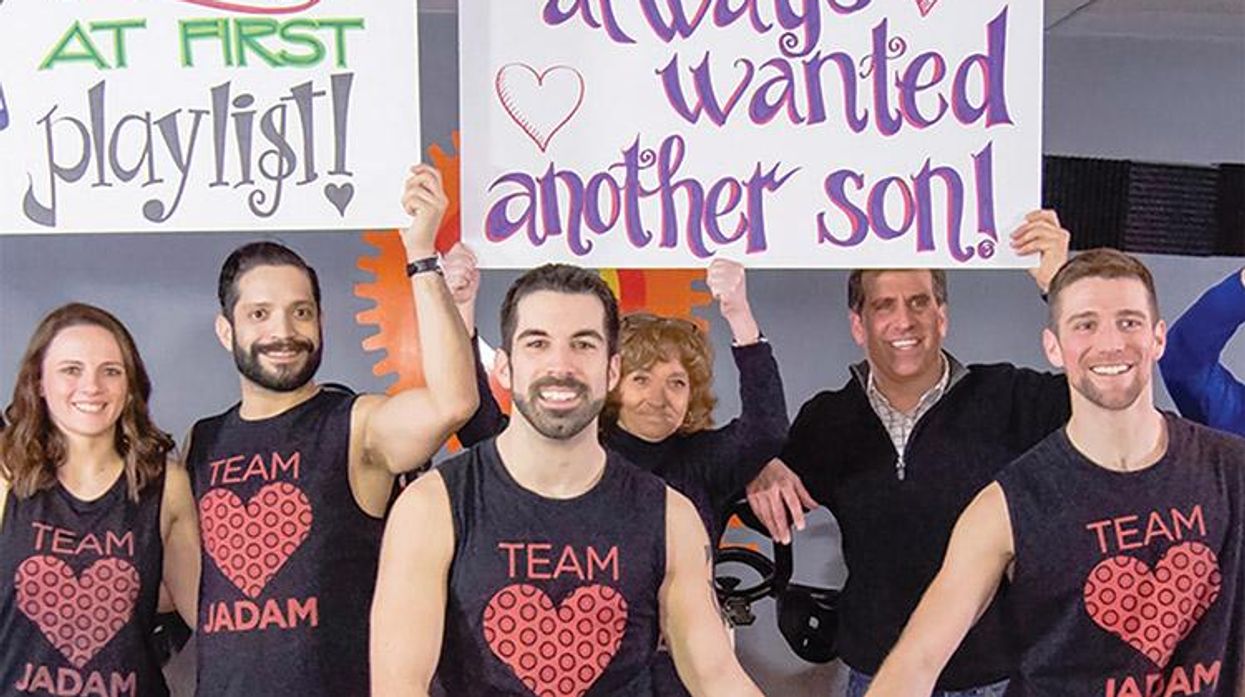This past year has felt like an ongoing cycle of trying to bludgeon the barriers that stand between many HIV-positive men and happiness. Whether it is friendship, love, or success, the path to achieving a healthy mindset is surprisingly quite simple, yet so hard to achieve. The road to self-confidence is paved through finding a way to accept yourself and allow others to accept you for who you are. In other words, when you open up about your status, your struggles, and your mistakes, that frees you to become a happier person. But after learning to conquer the psychological obstacles that came with my HIV diagnosis, a new obstacle materialized that proved to be quite a bit more complicated to solve.
I am HIV-positive and I want to work for myself. How the hell am I going to pay for my health care?
When I initially tested positive for HIV, I was a writer at a national law firm. The position was comfortable and well paid with flexible hours ... and I absolutely hated it. Some people just aren't cut out for the confines of the corporate world. But the position afforded me the Mercedes-Benz of health insurance and my medication was free. What else could a newly positive boy ask for, right? Or at least that's what I tried to tell myself.
Once the panic over my health subsided and life returned to quasi-normal, the urge to leave my job soon inundated my head once again. Only now, it was combined with the jaw-dropping reality of the $2,000 ball-and-chain that was my medication cost without insurance. At that point, the dream of being self-employed seemed nearly impossible. The disparity between being insured and uninsured cost more than my rent. I felt helpless, and my insurance policy now read like a life sentence without the possibility of parole from my boss. But just before I began to find pleasure in banging my coffee mug against my Herman Miller bars, three little words shined a light on a pathway out: Affordable Care Act.
Prior to the Affordable Care Act, I would have been systematically denied coverage due to a preexisting condition.
Yes, I was a candidate for services through the clinic that a multitude of other HIV-positive, gay men accessed, but the constant threat to services and the difficult process of getting into the system brought on a whole new wave of anxiety. I would also have had to change my medication because the government assistance program did not cover the prescription that I was on. I was willing to pay for private insurance, I was comfortable with my doctor, and I liked my medication. Suffice it to say that this stubborn queen wasn't budging.
Lucky for me, my boss was willing to do the budging for me. This past September, the cushy company to which I was married issued an amicable divorce. The feelings were mutual, as the honchos were happy to let go of the writer who only wore Converse and V-necks at the office, and I was happy to escape the clutches of corporate boredom. I warmly thanked them for a truly pleasant tenure with their firm, grabbed my suitcase and skipped out that door like Dorothy.
But the pressure was on. As I watched the blazing Obamapocalypse that was the unrolling of the health care exchange, my cheery color drained from my cheeks. Only one nightmare kept replaying in my head: endless phone call transfers and static letdowns once I uttered those scary little letters, HIV. If regular citizens were having difficulty finding plans that suited their needs, how in the world will someone like me find a plan that works?
So I gave up before I even tried, hid under the covers and watched Sex and the City reruns for a week.
But wait, this is exactly what the Affordable Care Act was drafted for, right? It was for people to access health coverage regardless of their personal medical charts. So the bureaucratic process of the health care exchange was arduous at best and horrific at worse. A mere minute of watching the news and you could almost hear the sweat percolating on the foreheads of Obama's elite to improve the accessibility of the system. When I came out of the closet as a gay man and again as an HIV-positive individual, I learned that the fear of the unknown is always worse than the truth in reality. The system would get better, but I was only hurting myself if I didn't try now. So I took off my stinky pajamas, put on my big boy pants, and got to work.
It wasn't easy, and I would be lying if I said I didn't want to throw myself into a bottle of vodka after the process, but I did find a health care plan that was right for me.
To listen to the pundits from partisan "news-ish" shows try to forecast when the archangels touch down on earth is like watching Jaws before going to the beach. When drafting policy that is intended to remedy a problem as massive as the U.S. health care crisis, it is impossible to achieve 100 percent success on the first try. I am a fervent believer of Charles Lindbloom's Branch Theory. A communal problem is never truly solved with one policy change. Instead, you continue to take increments of action towards making improvements and assessing what needs to happen next, just like branches growing on a tree. Eventually, the policy is strong and the logic is sound.
Many changes will have to take place before Obamacare is satisfactory for all of America, but the truth is that it works for many of those who were failed by the system for so long. For those who believe the Affordable Care Act is the sign of the end times, then color me the Antichrist.
As for my disease, it doesn't bother me to say that it barely affects my daily life. Many have cautioned me against speaking of this truth for fear that it would lead to the careless behavior of HIV-negative men because they believe HIV is "no big deal." It's true, if you are able to access quality care and are able to achieve a healthy mindset in regards to managing your disease, a newly diagnosed person can live a very healthy, normal life.
But according to the U.S. HIV/AIDS Care Continuum, getting to that point is a total bitch. The psychological and societal barriers that a newly positive person must overcome often prove to be too much for many to handle. Only 25 percent of those living with HIV are compliant with medication and getting the full benefits of treatment. The rest are at risk for a multitude of complications.
Even though I hate this phrase, HIV is no longer a death sentence, but it is only true if you are up for the challenge of pushing past the difficulties of managing your own health responsibly. Even if you are willing to play the odds, nobody wants to be married to their doctor and a pillbox forever. That is the reality, and it's enough to prevent new transmissions without the fire and brimstone of the past.
But on a lighter note ... I am HIV-positive and, thanks to the Affordable Care Act, I am finally my own boss.
TYLER CURRY created the Needle Prick Project as an editorial and visual campaign to elicit a candid and open conversation on what it means to be HIV-positive today. To learn more about the Needle Prick Project, visit Facebook.com/getpricked or follow Tyler Curry on Facebook or Twitter at @iamtylercurry.















Charlie Kirk DID say stoning gay people was the 'perfect law' — and these other heinous quotes
These are some of his worst comments about LGBTQ+ people made by Charlie Kirk.